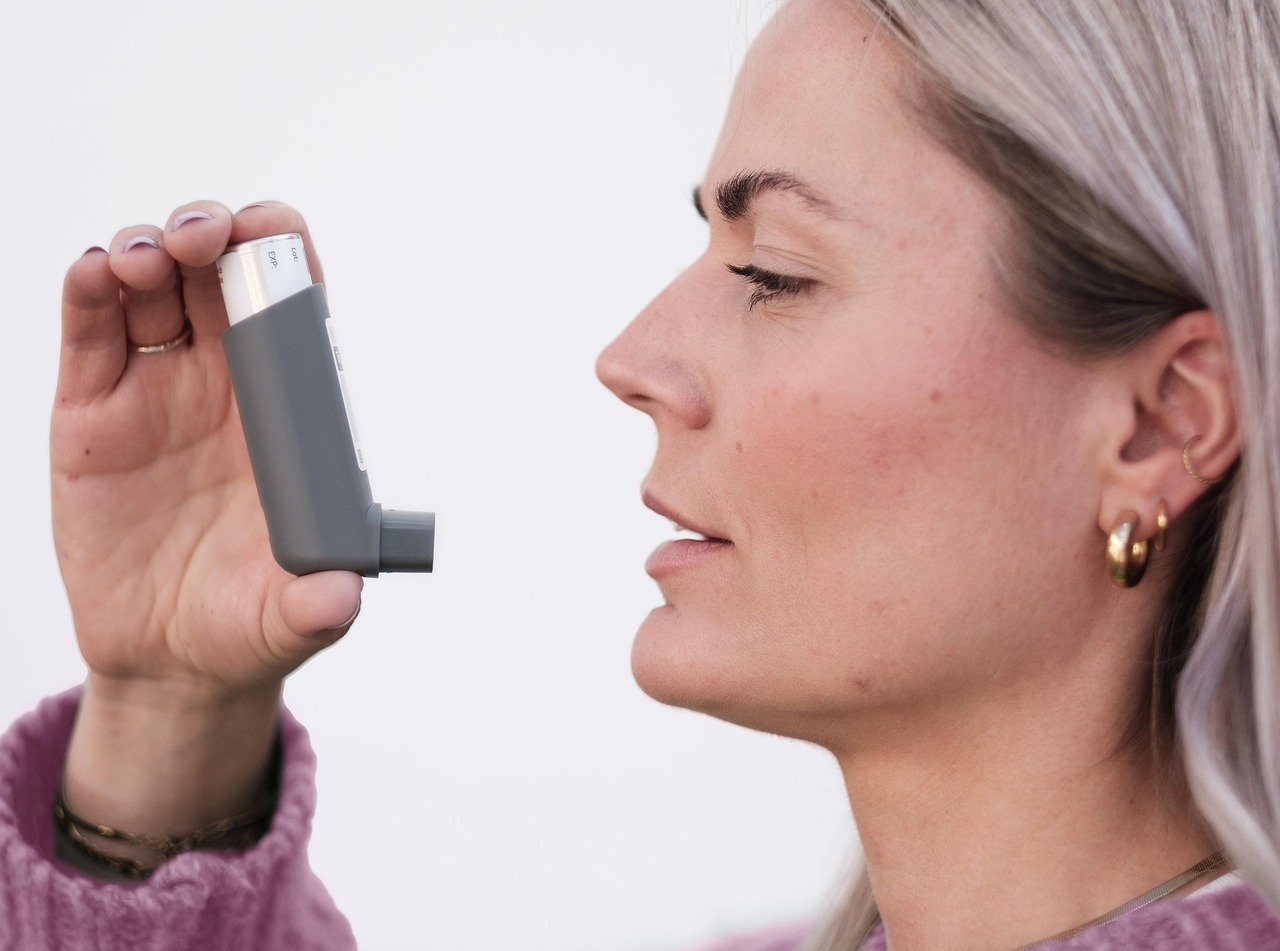When flu season draws closer, a common question that people ask is, how does this viral infection affect asthma? When you have influenza, you’ll experience lung irritation and inflammation, and this can worsen the symptoms of your asthma. This article helps you get ready for flu season by providing a comprehensive understanding of how the two conditions interact, the steps you need to take to manage both, and how you can prevent flu.
How is asthma affected by the flu?
The flu is a viral infection that affects the respiratory system, and since asthma is also a condition that impacts the lungs and airways, the two can interact in ways that worsen asthma symptoms.
Influenza causes irritation and inflammation in the lungs, leading to increased mucus production and narrowed airways. This can make breathing more difficult, particularly for those with asthma. As a result, people with asthma are more likely to experience worsening symptoms such as:
- Wheezing
- Chest tightness
- Shortness of breath
The flu can also make individuals more sensitive to other asthma triggers. In some cases, the flu can cause asthma symptoms to become severe enough to require medication such as inhalers or steroids. These interventions may help to prevent asthma attacks while you are recovering from the flu, though in more extreme situations, hospitalisation may be necessary.
It’s also important to note that people with asthma are at a higher risk of complications from the flu, such as bronchitis and pneumonia, which can be serious if not treated properly.
Can the flu cause asthma?
It’s important to clarify that the flu itself does not cause asthma. Asthma is a chronic respiratory condition that can develop for a variety of reasons, including genetic factors, environmental influences, and respiratory infections during childhood.
However, while the flu does not cause asthma, it can significantly worsen asthma symptoms. A person with asthma who contracts the flu may experience a flare-up of their asthma symptoms due to the inflammation and irritation the virus causes in the airways. The flu can trigger a range of asthma symptoms, from mild wheezing to severe shortness of breath, depending on the individual’s condition.
In other words, if you already have asthma, contracting the flu can exacerbate your symptoms and make the condition harder to control. This is why it’s crucial to take preventative measures to reduce your risk of getting the flu, especially during flu season.
How to manage the flu if you are asthmatic
If you have asthma and catch the flu, managing both conditions is crucial for your health and comfort. Here are some steps you can take to manage asthma while recovering from the flu:
Rest and hydration
When you have the flu, it’s important to rest and stay hydrated. Drinking plenty of fluids will help loosen mucus and make it easier to breathe. Staying well-rested helps your body fight off the flu and recover more quickly.
Use a humidifier
Using a humidifier or steam inhaler can be helpful for people with asthma who have the flu. These devices add moisture to the air, which can help reduce airway irritation and congestion. Steam inhalation can also help make breathing easier by soothing inflamed airways.
Follow your asthma action plan
If you have an asthma action plan, make sure to follow it during flu season. This plan outlines the steps you should take to manage your asthma symptoms and includes guidance on when to use preventer and reliever inhalers. For many people with asthma, it’s important to continue using preventer inhalers even when you’re sick, as these medications help control inflammation in the airways.
Be cautious with over-the-counter medications
While it might be tempting to use over-the-counter flu medications to ease your symptoms, it’s important to consult your healthcare provider before taking anything. Some flu medications can contain ingredients that may worsen asthma symptoms or interact with your asthma medications. Always check with your doctor or pharmacist before taking any new medication, even if it’s available without a prescription.
Seek medical help if symptoms worsen
If your asthma symptoms become more severe during the flu, it’s important to contact your doctor. You may need additional treatment, such as a higher dose of inhalers or other medications, to control your asthma and prevent further complications. If you experience difficulty breathing or your asthma symptoms do not improve, you may need to see your doctor for a physical examination and possibly receive more intensive treatment.
How to prevent getting the flu
Flu prevention is particularly important for people with asthma. Taking the following steps can help reduce your risk of contracting the flu and minimise the chances of complications:
Get the flu vaccine
The flu vaccine is one of the most effective ways to prevent getting the flu. It’s particularly important for people with asthma to get vaccinated each year, as the flu can exacerbate asthma symptoms. Speak with your healthcare provider about getting the flu vaccine, especially if you have asthma.
Practice good hygiene
Wash your hands regularly with soap and water, particularly after coughing or sneezing or when you touch public surfaces. Avoid touching your face, especially your eyes, nose, and mouth, as this is how the flu virus spreads.
Avoid close contact with sick individuals
If possible, avoid close contact with people who have the flu or other respiratory illnesses. If someone in your household or workplace is sick, take extra precautions to protect yourself, such as using disinfectant wipes on frequently touched surfaces.
Maintain a healthy lifestyle
A healthy lifestyle can strengthen your immune system and help prevent the flu. This includes getting adequate sleep (7-9 hours per night), eating a balanced diet, staying hydrated, and exercising regularly. These healthy habits help your body better resist illness and recover faster if you do get sick.
What next?
Managing asthma and the flu together can be challenging, but with the right precautions, you can minimise the risks. Clinical trials, such as those conducted by FluCamp, focus on improving treatments for both asthma and the flu. These trials are important for finding new ways to manage asthma more effectively and prevent complications related to the flu.
FluCamp offers paid asthma clinical trials that compensate participants for their time and effort. If you have asthma and are interested in contributing to medical research, you are encouraged to explore available clinical trials and apply when you’re ready. These studies could help improve treatment options and ultimately make it easier for people with asthma to manage their condition during flu season.















